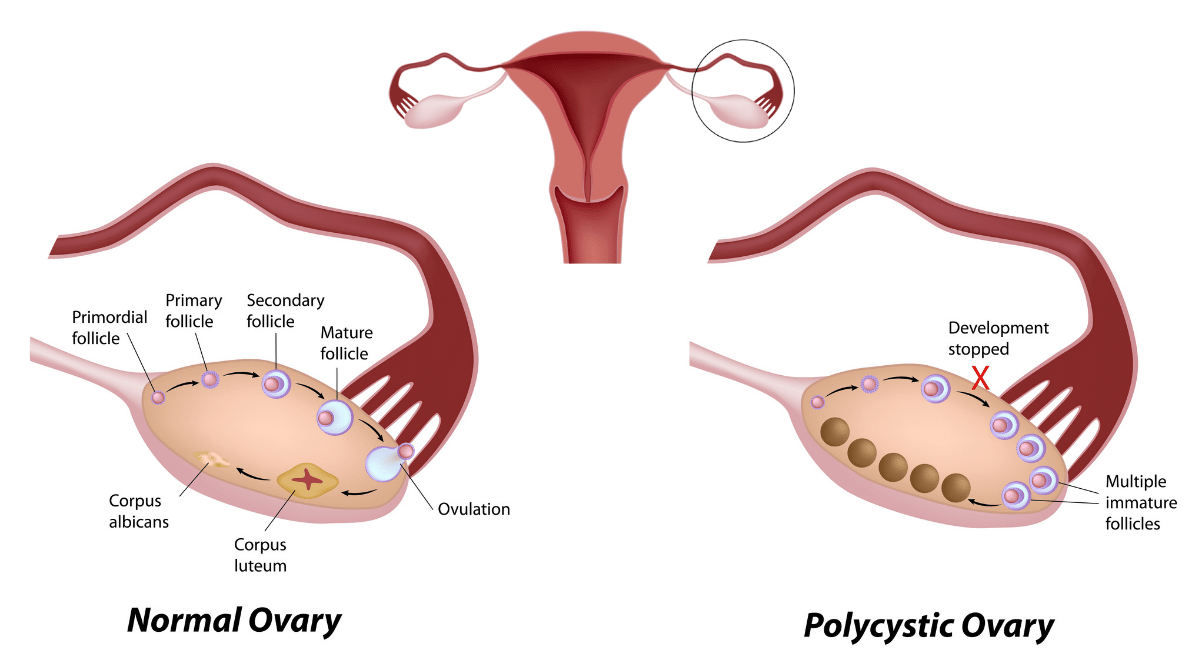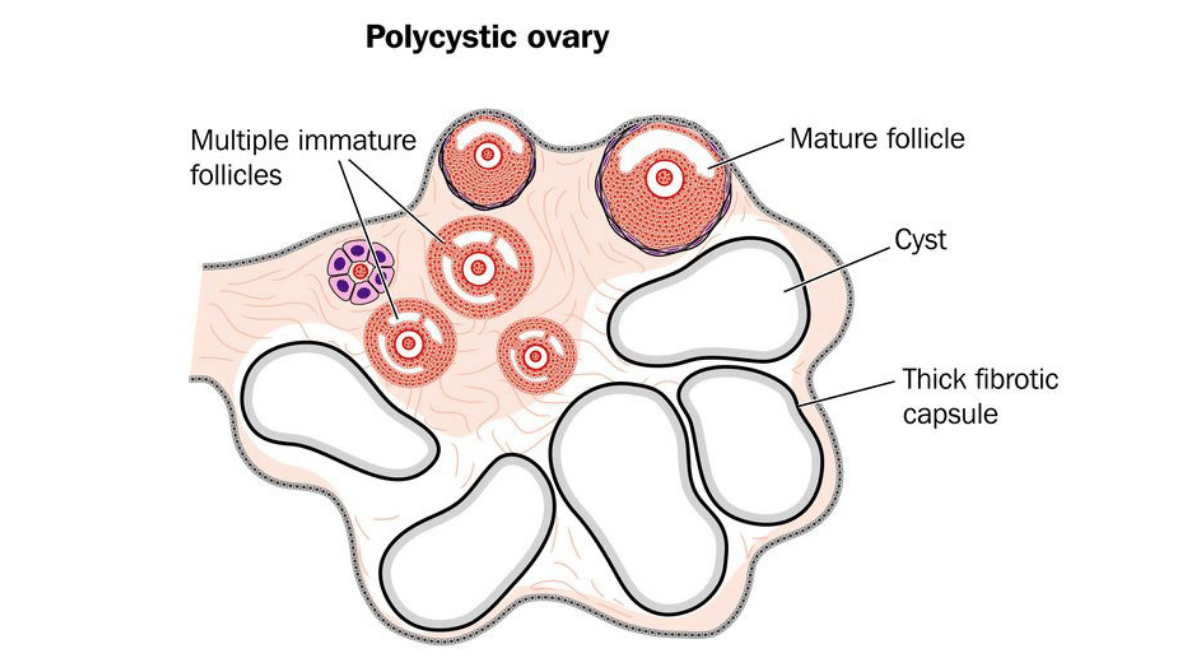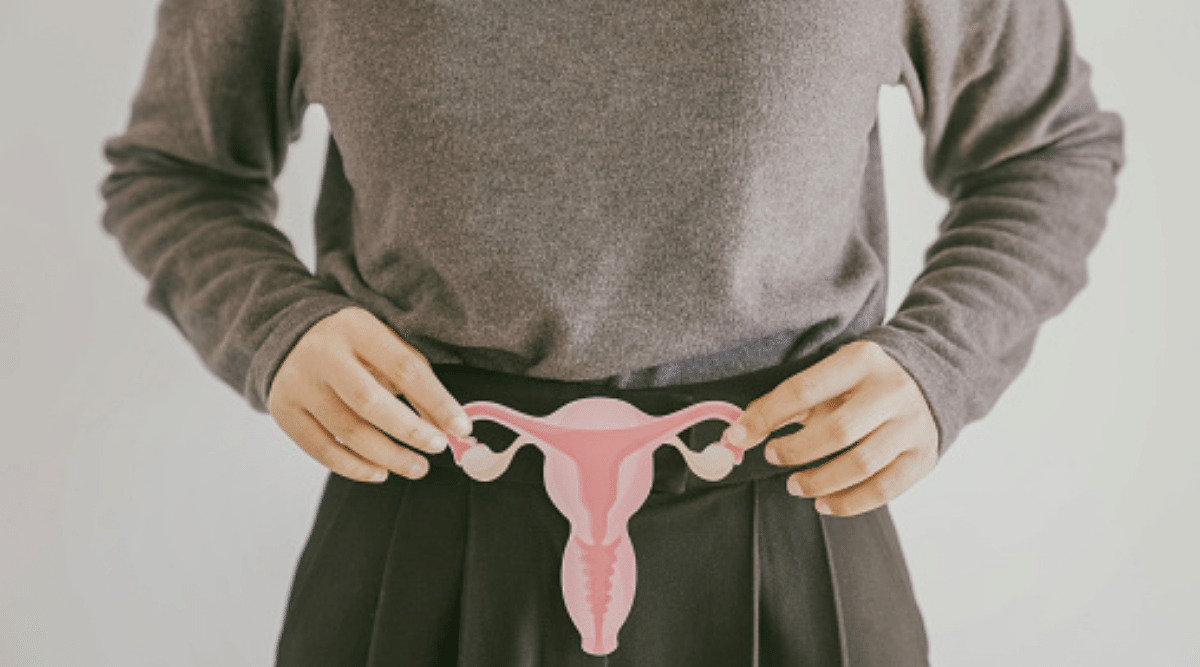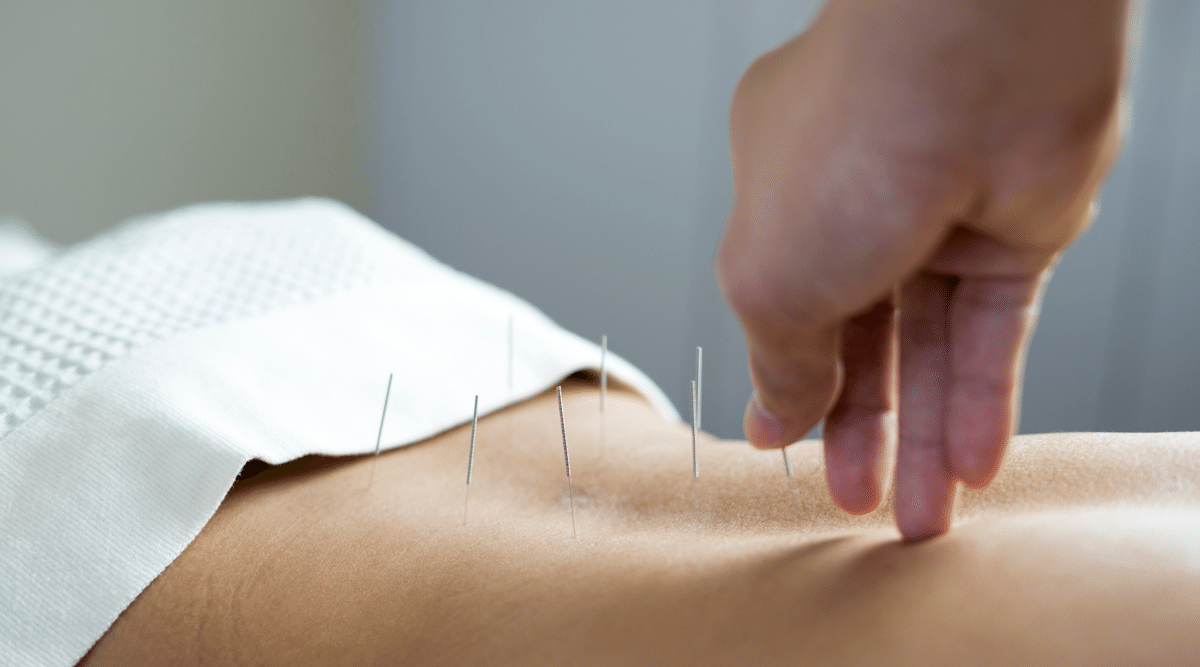If your doctor said you have bilateral polycystic ovaries, you’re probably wondering why and whether it makes it harder for you to conceive a baby. Don’t worry; we’ve answered your questions about what it means for you and what you need to do.

What causes bilateral polycystic ovaries?
Having bilateral polycystic ovaries can be a variation of normal. However, you’ve probably read about polycystic ovarian syndrome (PCOS) if you have polycystic ovaries.
A syndrome is a group of symptoms – in this case, the symptoms involve higher levels of male hormones (androgens).
If you do have PCOS, it might cause the following:
- irregular periods
- difficulty conceiving
- extra facial and body hair
- pimples (acne)
- insulin resistance (difficulty using glucose in your blood)
- excess weight gain.
PCOS is relatively common, with 1 in 10 women of childbearing age having this diagnosis. However, there are probably twice as many women who haven’t received a diagnosis.
I have bilateral polycystic ovaries, but I don’t have any other PCOS symptoms. Why?
Some women have bilateral polycystic ovaries without PCOS, which can be normal. However, they may or may not go on to develop PCOS.
Occasionally, polycystic ovaries are part of other conditions involving problems with hormones. If you have bilateral polycystic ovaries, speak with your doctor about whether it’s part of another condition.

What causes PCOS?
If you have PCOS, there are probably several causes that interact with each other, including:
- genetics (your family history)
- your environment (such as exposure to hormone-disrupting chemicals)
- lifestyle (exercise and eating habits).
Question: I have bilateral polycystic ovaries and other symptoms of PCOS. My doctor said this would make it difficult to fall pregnant. We are desperate to start a family. What is the treatment?
Don’t worry if your bilateral polycystic ovaries are part of PCOS. Research shows women with PCOS give birth to just as many babies as other women. However, they might need more time and more help to get there. So, if you’ve been trying for 12 months, book an appointment to see your GP.
The first and best PCOS treatments are getting enough physical activity and eating well.
There are also medications you can take. Letrozole and clomiphene are commonly used to stimulate oestrogen in PCOS treatment. Another one is metformin, which helps both improve insulin sensitivity and regulate ovulation. If you need extra help, you also have the option of IVF.
Women with PCOS who do not want to fall pregnant right now can choose to take oral contraceptive pills to simulate regular periods.

Question: I have bilateral polycystic ovaries, and since giving birth to my daughter, my periods still haven’t returned. My periods were irregular before my pregnancy. My friend says I’ll need medication to regulate ovulation when we want to have another baby. I don’t want to take pills, though.
Firstly, if you’re breastfeeding, remember that how soon a breastfeeding mother gets her period back varies greatly. For some, menstruation restarts while they’re still breastfeeding, perhaps when the baby starts solids. Other women may not menstruate again until they wean their baby.
If your doctor says you have PCOS, you can improve your chances of conceiving easily through exercise and healthier eating. In addition, losing even 5 to 10% of your weight can improve your hormone levels and reduce your PCOS symptoms if you’re currently overweight.
Also, look at other lifestyle factors that impact fertility for any couplethings like smoking, drinking alcohol, untreated sexually transmitted infections and dental health.
If a doctor recommends you take medication for PCOS treatment or anything else, you can make an informed decision. But first, get all the information you need using the BRAIN acronym if you’re unsure what questions to ask.
Question: I’m carrying more weight than is healthy, and I know this can worsen my PCOS. I’ve tried exercising, but it just makes me hungry. I’ve heard drinking lemon juice first thing in the morning is helpful for weight loss. Is this true, or what would you recommend for someone like me with bilateral polycystic ovaries and PCOS?
Remember that PCOS is a long-term condition, so focus on lifestyle changes you can keep up for the foreseeable future. (For example, don’t bother banning ALL chocolate from your life!)
Steering clear of strict diets is vital, given that women with PCOS are more likely to have disordered eating. It’s worth seeing a dietitian and a psychologist specialising in eating disorders if you think this applies to you. They can help you put your plans into practice in a healthy, achievable way.
Your dietitian might recommend eating lower glycaemic index (GI) foods to manage insulin resistance. They digest more slowly and keep you feeling fuller for longer than highly processed convenience foods.
For example, you can fill up on low GI wholegrains and extra vegetables by eating:
- muesli with berries for breakfast
- lentil dahl for lunch
- fruit salad and nuts for snacks
- brown rice, chicken and vegetable stir fry for dinner
Getting back to lemon juice – sure, this can be helpful as a part of a varied diet. However, there is no magic food or supplement for losing weight.
As well as eating nutrient-dense foods for good health and weight maintenance, you’ll ideally be active on most days. Include moderate and vigorous cardio activities (such as walking, running, swimming or cycling). Plus, we all need muscle-building workouts (weights at the gym or bodyweight exercises in your lounge room).

Question: Is there any evidence that acupuncture can help with PCOS?
There has been some research on acupuncture as a PCOS treatment which looks promising.
A 2020 review of 22 randomised controlled trials found that women with PCOS who had acupuncture gained several benefits. For example, they were more likely to have their periods return and had lower levels of the hormones typically too high in PCOS (luteinising hormone and testosterone). However, when looking at what effect this might have had on achieving pregnancy and birth, there was no difference between the women who did and didn’t receive acupuncture.
Another review examined whether acupuncture helped manage participants’ weight. The acupuncture group had a lower body mass index, plus healthier glucose metabolism and insulin sensitivity.
Although we need more research on acupuncture as a PCOS treatment, it’s worth discussing with your doctor or midwife.
Reference List
PBB aims to keep you informed with the latest research-based information. Check out our reference list used in the creation of this article.
Article rewritten by Louise Wedgwood 10th November 2022


Recent Comments